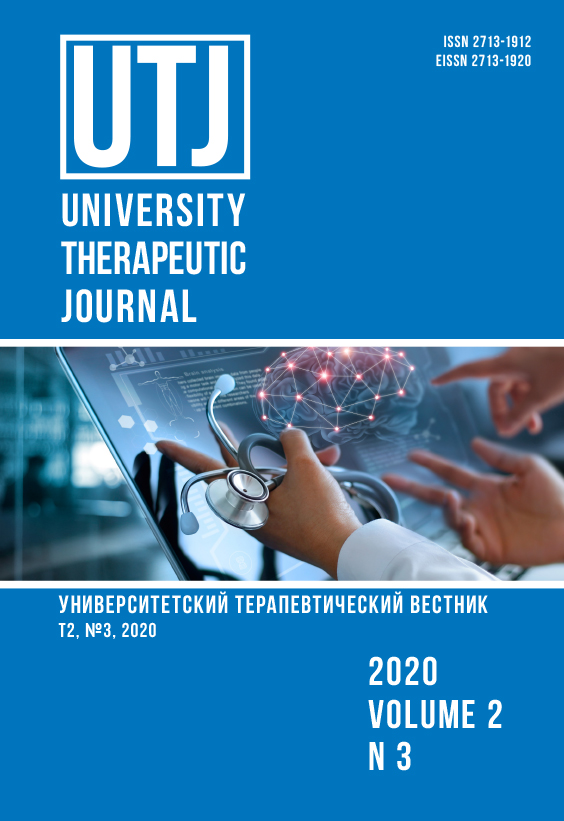The role of physical exercise in the mechanisms of progression of chronic heart failure in elderly patients with coronary heart disease
Abstract
Physical rehabilitation of elderly patients with chronic heart failure (HF) in combination with optimal drug therapy has a positive impact on their physical performance and quality of life. The aim of the study was to evaluate the effect of a training program in a day hospital on the content of Pro inflammatory cytokines and markers of collagen metabolism in elderly patients with HF. We conducted an open randomized study that included 60 patients with HF middle range (40-49%) ejection fraction (HFmrEF) ischemic II functional class (NYHA), mean age 69.3±5.3 years. In elderly patients who underwent physical training, an increase in the distance according to the 6-minute walk test was observed (∆ 35%, p<0.01), a decrease in resting heart rate by 9% (p<0.05), and no negative effect on systolic and diastolic blood PRESSURE (p>0.05) compared to the group of drug therapy. We found that in patients with CHF, the level of TNF-α was increased compared to the control group by 64% (p<0.001), matrix metalloproteinase-1 (MMP-1) by 75% (p<0.001), MMP-9 by 59% (p<0.001), tissue inhibitor (TIMP-1) by 43% (p<0.001). In an inter group comparison, the level of TNF-α decreased in patients who were engaged in physical training - ∆7%, MMP-1 ∆11%, MMP-9 ∆7%, TIMP-1 ∆12% (p<0.05) compared with the group of only drug treatment. A physical fitness program in a day hospital improves the state of collagen metabolism and increases functional capabilities by reducing circulating inflammatory factors that can trigger major cardiovascular events in elderly patients with ischemic heart disease.


